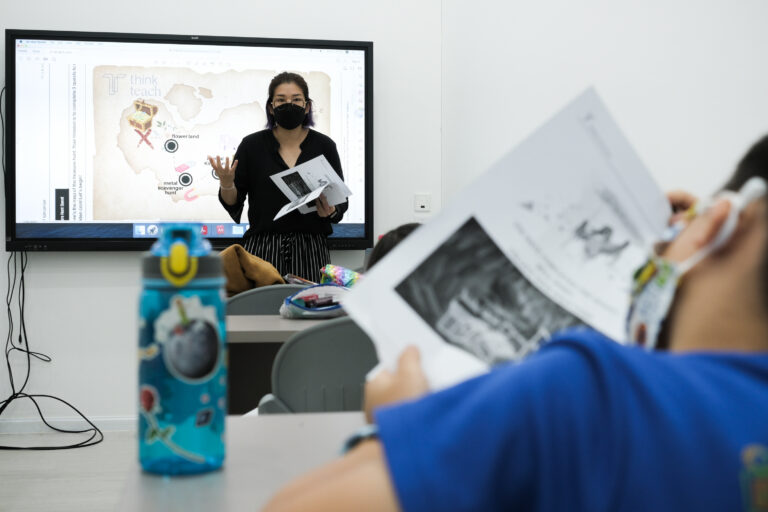Teaching My Child Ahead of School
Parents often wonder if they should teach their children in advance with the PSLE Science Syllabus. The next concern is often how much they should kick start their child’s learning in advance. Teaching your child ahead of school is encouraged…with the right approach. Getting a hold of the top Science textbooks or assessment books and getting your child to complete them before the new school term starts could be detrimental to their interest in Science. Science encompasses discovery, imagination, and curiosity, which can easily be killed off when doing repetitive assessment books solely for the grades.
“The important thing is not to stop questioning. Curiosity has its own reason for existence. One cannot help but be in awe when he contemplates the mysteries of eternity, of life, of the marvelous structure of reality. It is enough if one tries merely to comprehend a little of this mystery each day.” – Albert Einstein
As such, we have included 3 Tips below to set your child up for PSLE success in Science, while retaining their interest and passion for it.
Planning and Scheduling
The PSLE Science syllabus consists of about 20 topics. It gets very overwhelming for students when they are tested on the concepts from all these topics and are expected to apply them into real-life scenarios. An example shown in the diagram below has been taken from the PSLE exam paper in 2019. In order to tackle this question, students are required to explain the reasons that have caused Beatrice’s spectacles to become foggy.

To keep better track of your child’s exposure to real-life scenarios, get a hold of the year’s wall calendar and mark down the topics you want to focus on with your child. You can decide on the duration needed to be spent on each topic based on your child’s learning pace. Exposing your child to Science in real-life does not have to be complicated, and can even start in the comfort of your home. You can get your child to observe a cold drink can when it is first taken out of the fridge, and 5 minutes after it has been left out in the open. Explain to your child the reasons behind the formation of water droplets on the cold drink can. The explanation must be simplified, but feel free to throw in one or two concepts like “condensation”. Repeat this with different scenarios and stick diligently to your plan stated in the calendar. It is important to give your child the time and space to explore and absorb what they have learnt.
“Children are like wet cement. Whatever falls on them makes an impression.” — Dr. Haim Ginott
Asking the Right Questions
Discovering the world of Science with your child can be achieved in many ways. Watching documentaries, doing hands-on experiments, and observing everyday life can very well cover a wide spread of topics that are relevant to the PSLE Science Syllabus. These are already a good start to get your child interested and exposed to Science. But how else can you incorporate the PSLE Science Syllabus further while making new discoveries?
If you were to refer to the most recent PSLE exam paper tested in 2021, you will see that there are many different types of questions being asked. It is very common for students at the P6 level to be clueless when asked to answer questions like: describe what could be concluded, stating the physical property, obtaining reliable results and so on. They struggle to tackle these question types as they simply do not understand the question words.
As such, it is important to plan your child’s learning. Think about how you should frame the questions you ask while discussing the phenomena experienced in your daily life. Start exposing your child to the different question types and explain in simple terms what they mean. This can be time consuming, but will be much more effective in the long run.
Record Their Observations
Observing and recording is an important scientific skill to acquire. This will allow your child to keep track of what they have seen, questioned or discovered. Your child can record in many ways, from writing to drawing or even creating a blog!
During this process, you can guide your child further by asking more in-depth questions like, “Let’s try another way and see what might happen!” This will stimulate your child’s curiosity and encourage them to ask questions on their own. If an experiment does not go according to plan, don’t just stop there. Investigate and find out what went wrong to learn together from your mistakes. This is a good opportunity for your child to learn to conduct experiments fairly and identify what they can do to improve them. You will realise that a type of question tested in examinations requires students to find ways to improve certain experiments, and hence learning to improve on their failed experiments can hence help them to answer such questions in the exam.
Enjoy the Process
While your child spends this time with you, respond positively to your child’s questions, and be patient as they discover the world around them through Science. Enjoy this exploration process and remember to always be supportive of your child in their learning journey.




